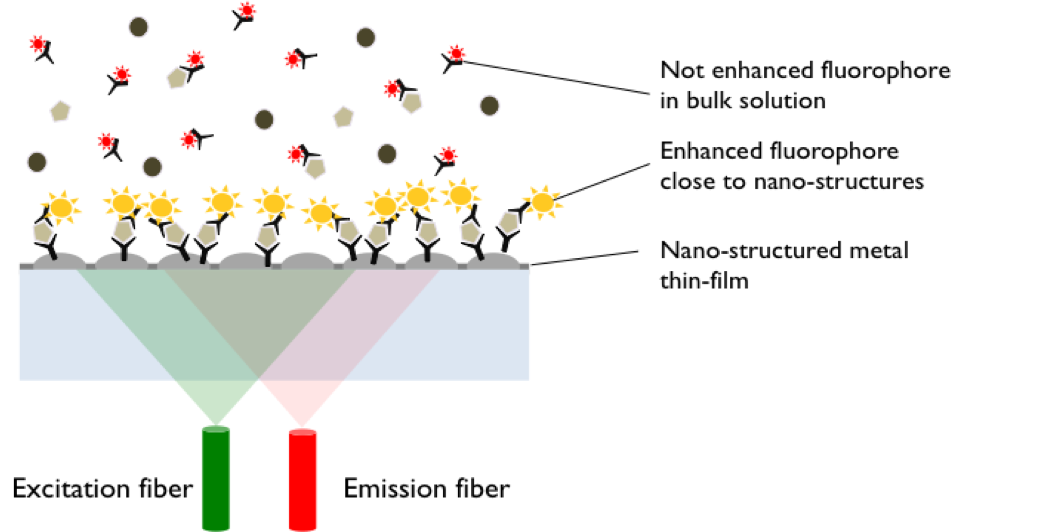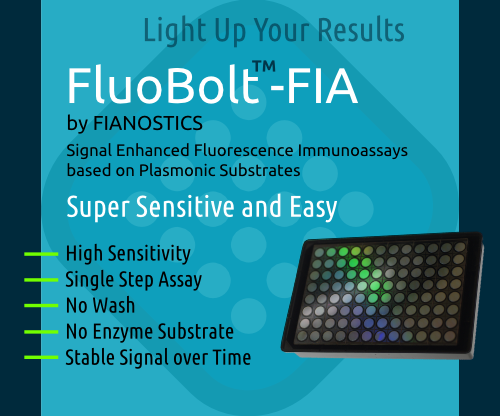What is Metal Enhanced Fluorescence?
Metal Enhanced Fluorescence (MEF) is based on the reaction of excitation light with electrons of metal nano-structures to generate strong electromagnetic fields, also known as LSPs (localized surfaced plasmons). When LSPs are bound to the surface of the metal nano-structure, it creates a plasmonic structure, which can enhance the signal of the phosphores more than 100 times.

About our FluoBolt™ MEF Assays

Eagle Biosciences proudly offers a line of Metal Enhanced Fluorescence Immunoassays from our partner, Fianostics. These products from the FluoBolt™ line are highly sensitive, single-step assays that require no enzyme substrates. FluoBolt™ MEFs are completely compatible with the 96-well ELISA format and provide a stable signal over time.
We currently offer the following FluoBolt™ MEF Immunoassays:
With many more to come!
Contact us for more information about FluoBolt™ products.
